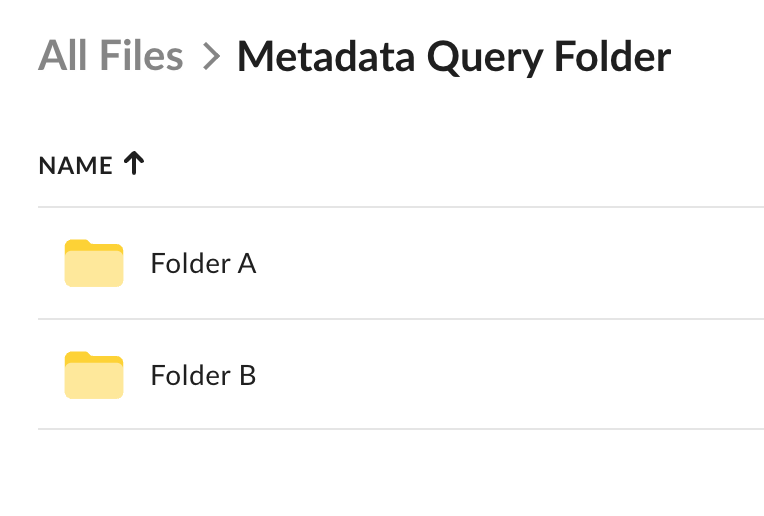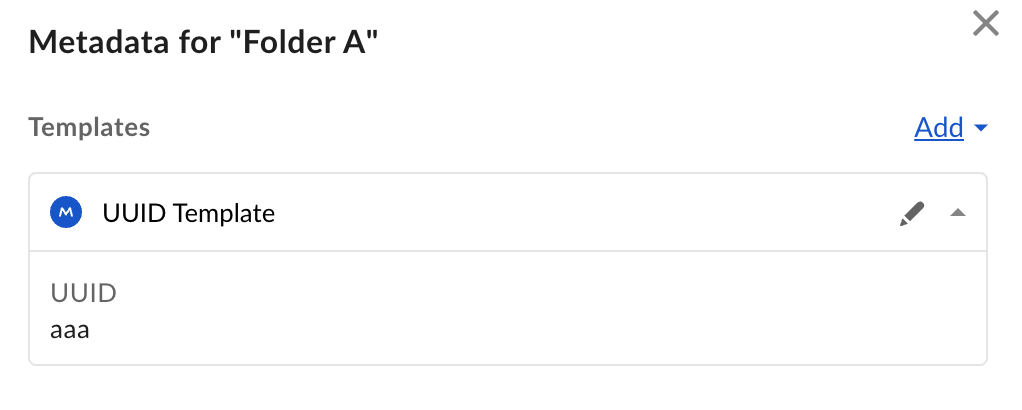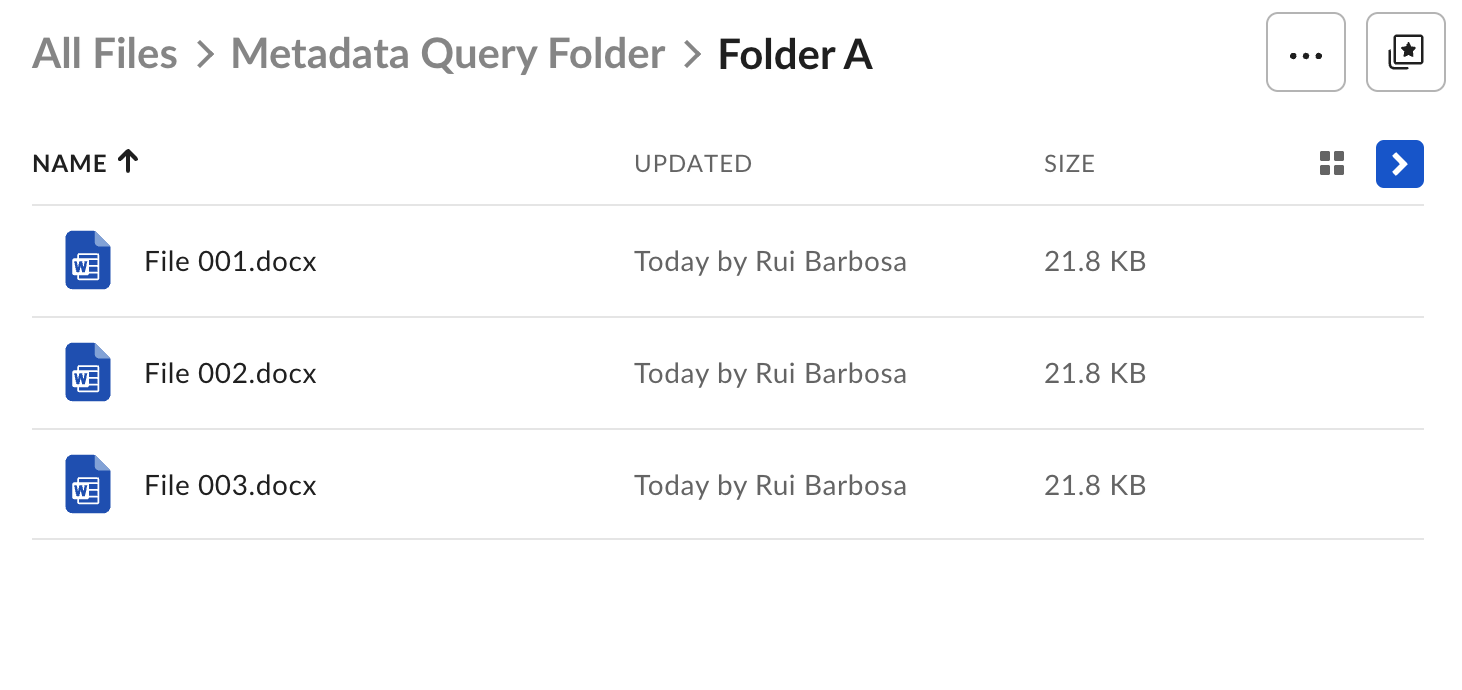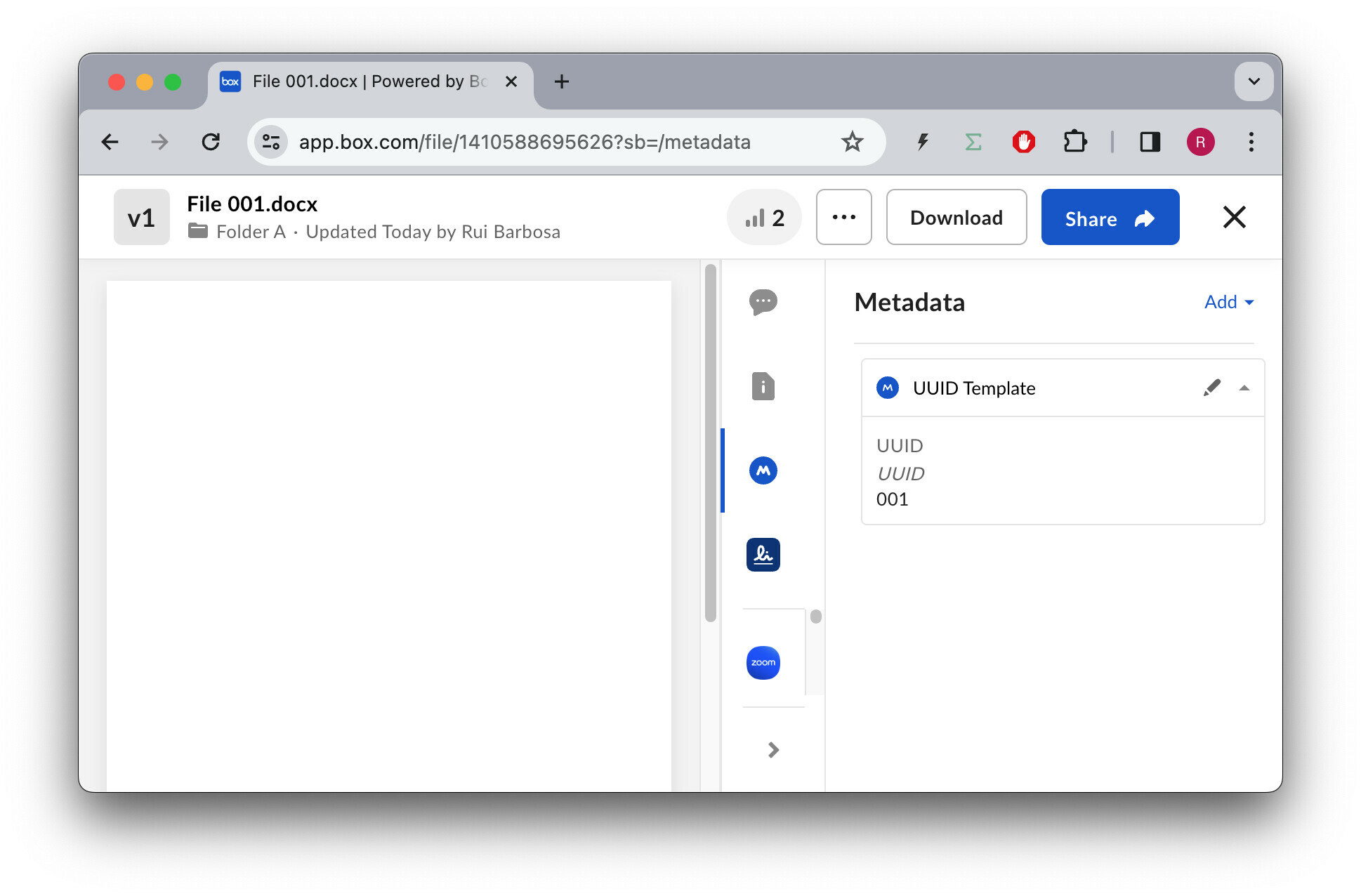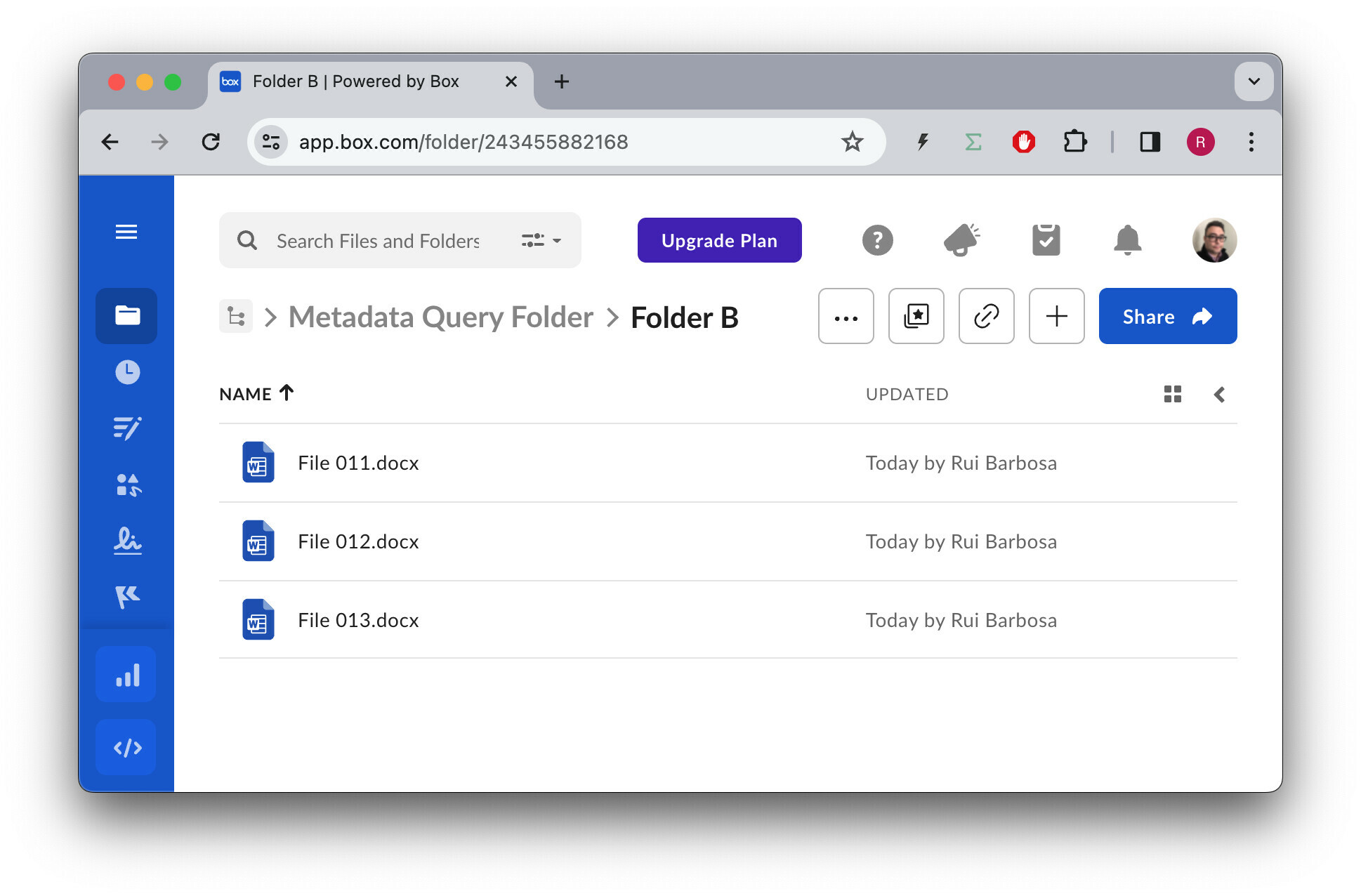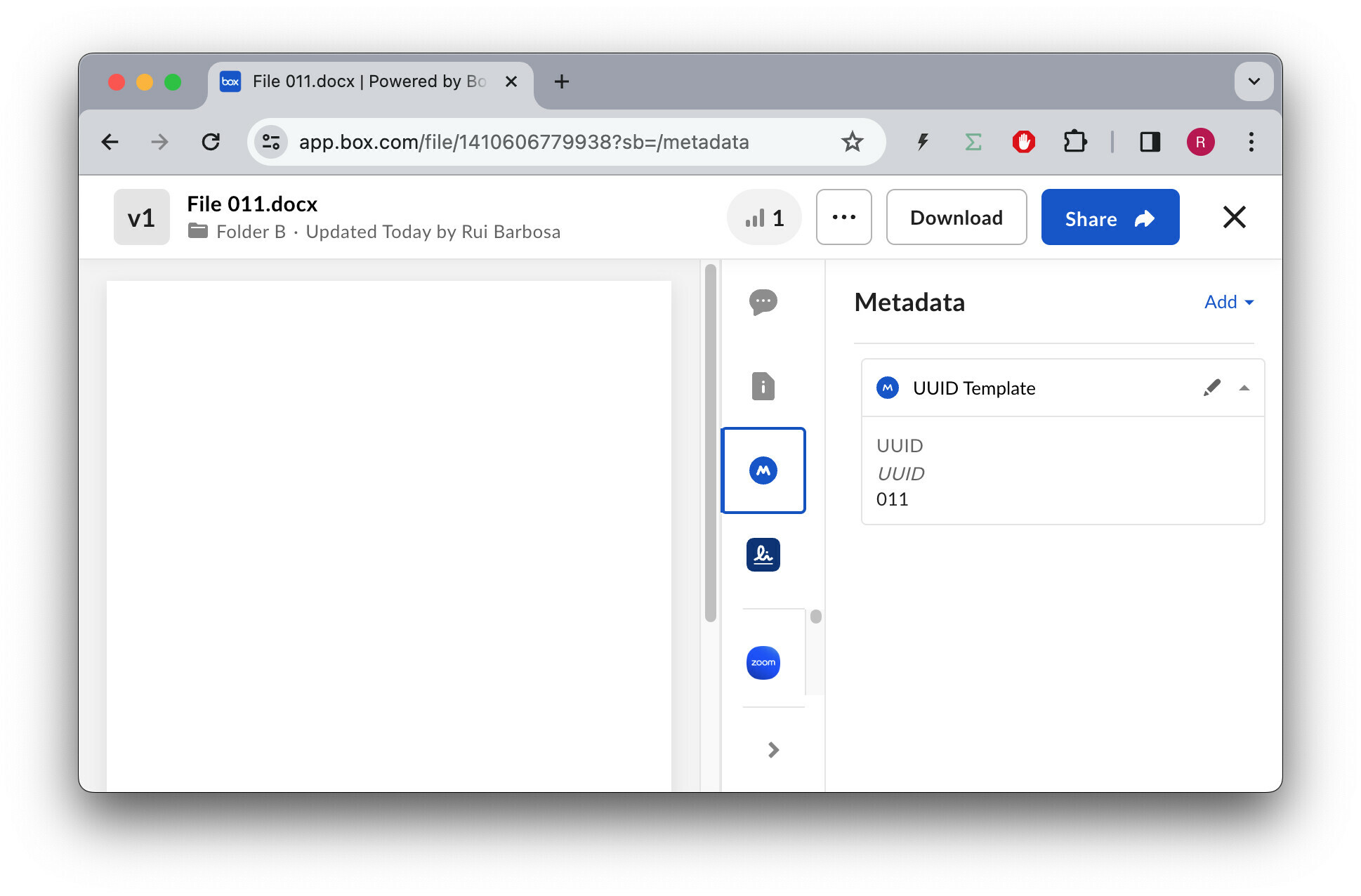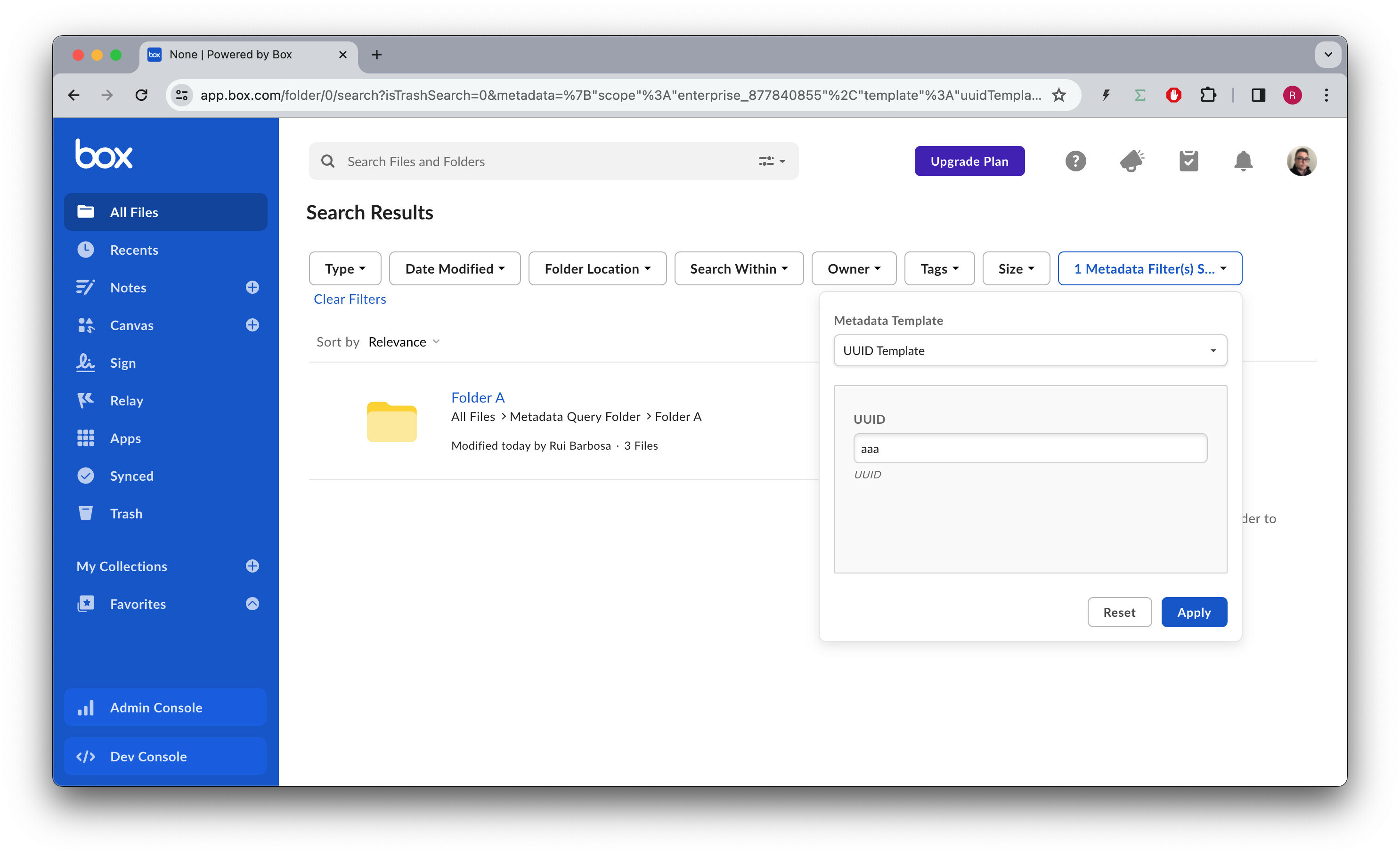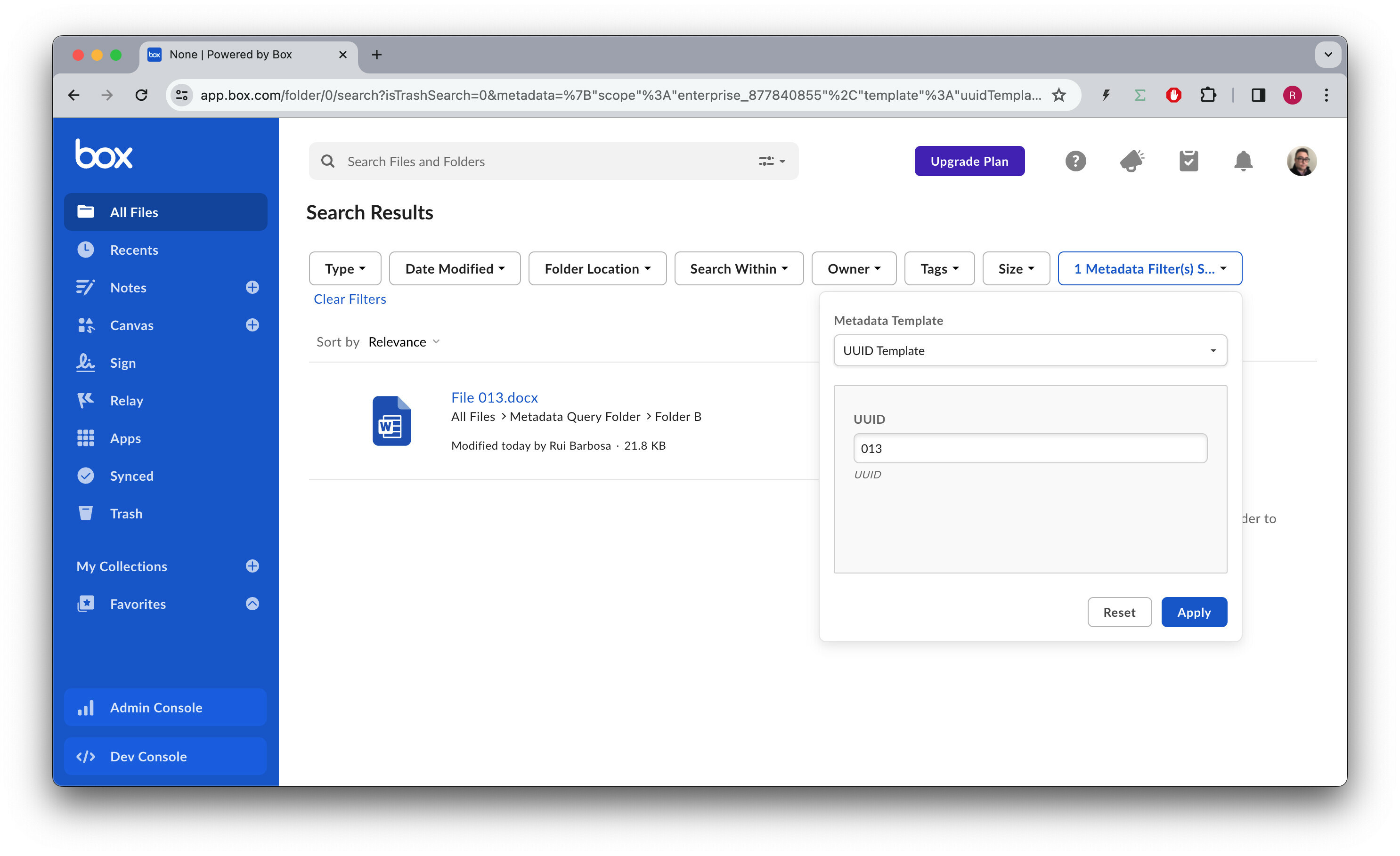For all intents and purposes, I’m using cURL commands to operate my application.
Project: I have a large number of folders (1000+) in the root of my application. Each folder has a standard structure of sub-folders, and within each sub folder there can be a large number of individual files (1000+).
Need: I have a database with associated records. Each record is given an identifier (UUID). I created a metdata template with one field called UUID. Goal is to add a metadata instance to related files and folders with associated UUID. When you pull up the record in the database, application will search all metadata for UUID, and return appropriate files.
Problem: I have successfully done so with files. Added metadata instance, search for UUID, and found list of files (99% of the time it returns just one). I have NOT been able to do so with folders. I need to be able to search for a metadata instance on a “folder” and retrieve it.
Because of the sheer number of folders, list_items_in_folder was a 100 entity limit, and looping through them without finding specified folder gives me a lot of false NOT FOUND errors just because the right folder was not included. Also, I’m trying to make this application operate at a reasonable speed because we can have a good number of simultaneous users, and currently iterating through multiple loops at 100 items per clip and drilling down through sub-directories is creating too many API calls and bogging down the system.
What I’m looking for is more guidance on how to search for metadata on folders. Also given the scope of the project, I’m open to other suggestions on how to approach the problem.


